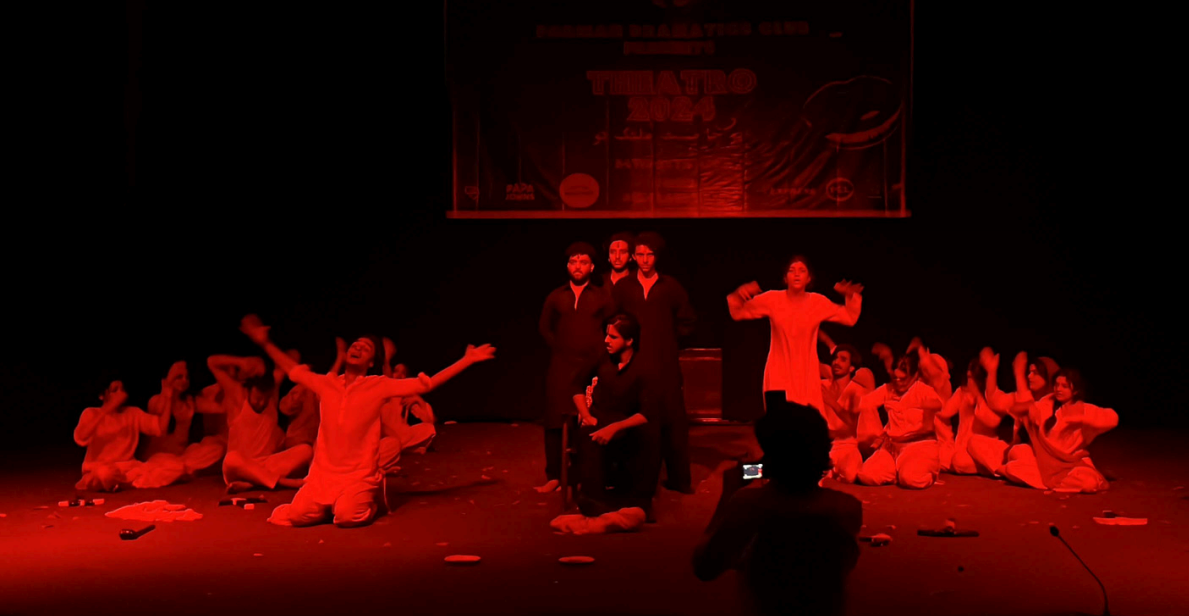By: Muhammad Abdullah Moin Afzal
Pakistan’s first-ever thesis-based theatre performance, premiered at Beaconhouse National University (BNU), marking what academics and artists describe as a milestone in the country’s performing arts landscape. Conceived, written, and directed by Muhammad Abdullah Moin Afzal, the production blends metaphysics, mysticism, and satire into a stage performance that explores spirituality and national reflection.
The play opens in Alam-e-Arwah — the mystical World of Souls — where mime and symbolic gestures replace spoken dialogue. At the center of the narrative is the Laal Rooh (Red Soul), a silent metaphysical presence that serves as the thread connecting different realms. According to the director, the character reflects on themes of divine justice, bureaucracy, and social inequality without uttering a single word.
The story shifts to the physical world through the character Chand Khan, a flamboyant man traveling by train on the eve of Eid in 1990. His reckless decision to pull the emergency chain leads to a catastrophic train collision in which over 1,000 people die. While Khan survives, the play focuses on the spiritual consequences of his actions rather than survival itself.
Structured around three key mime sequences, Kaalki transitions between the realms of Alam-e-Arwah (World of Souls), Duniya (Earthly World), and Barzakh (the space between life and death). Each performance segment reflects on the temporary nature of life, the inevitability of consequence, and the unequal return of souls to their source.
By presenting itself as Pakistan’s first academic thesis theatre performance, the production signals a shift in how theatre is perceived in academic and cultural institutions. It positions theatre not merely as entertainment but as an intellectual and civic engagement with philosophy, history, and society.
The production was co-led by Associate Director Areeba Chaudhry, who also performed the role of the Laal Rooh. Afzal, who heads The Fiasco Theatre Company and The Filmatography, described Kaalki as an attempt to integrate academic research with performance art, drawing inspiration from Sufi traditions and South Asian theatrical roots.


